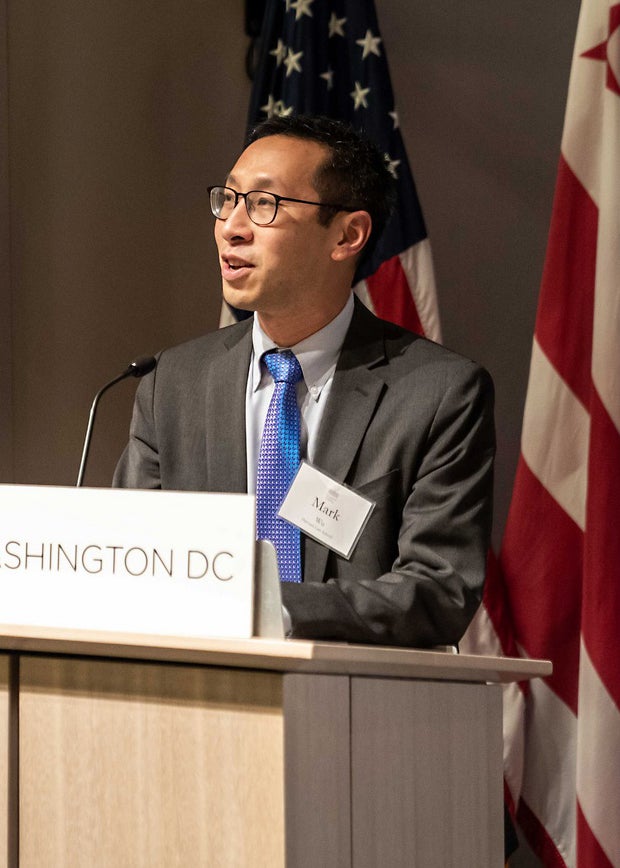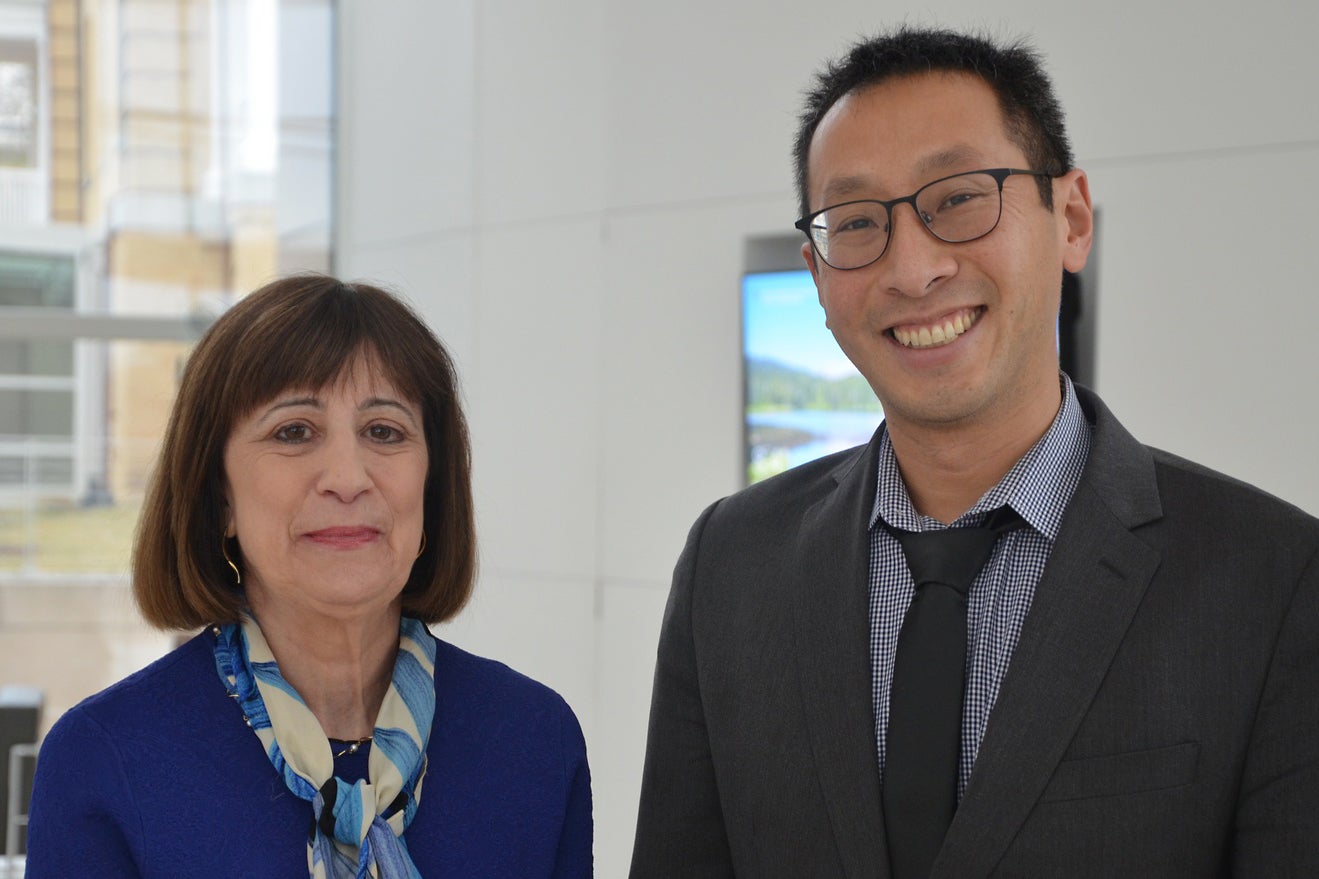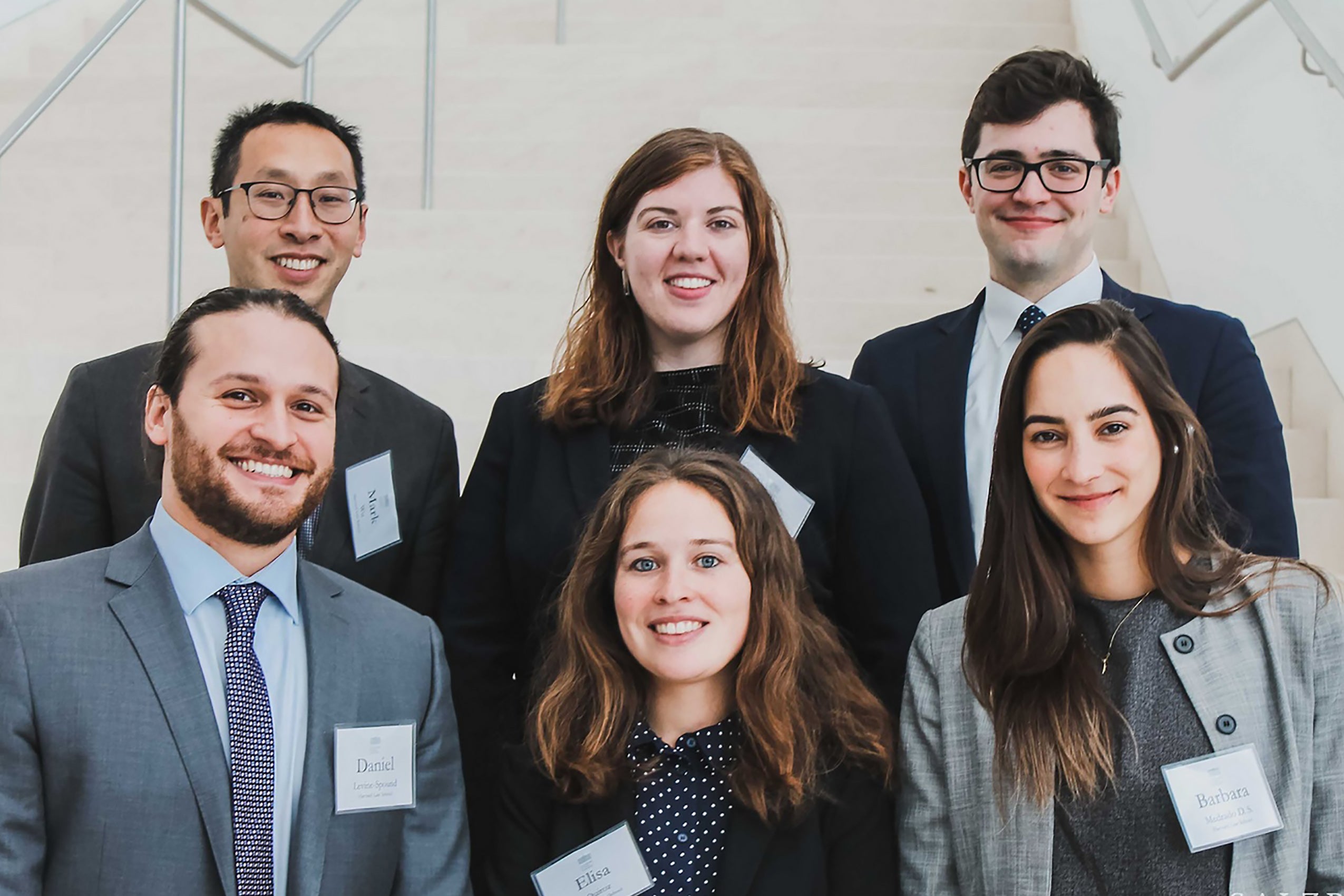The seventh annual Salzburg Cutler Fellows Program brought together 53 students in Washington, D.C. last month, including five from Harvard Law School. Chosen for their academic excellence and strong interest in international and public interest law, Daniel Levine-Spound, Barbara Medrado Dias Silveira, Natalie McCauley, Elisa Quiroz, and Ryan Rossner represented Harvard among an outstanding cohort of Cutler Fellows from around the world. They were joined by faculty representative and program chair Mark Wu, Henry L. Stimson professor of law, who led a workshop on trade and sustainable development.

Over two days, February 22-23, Cutler Fellows engaged with leading legal professionals and public servants to discuss the global future of law and governance at a time when the rules-based international order is becoming further challenged. Speakers included Wendy Cutler, vice president of the Asia Society Policy Institute and former diplomat and negotiator in the Office of the U.S. Trade Representative; John Bellinger, former U.S. legal adviser to the Department of State and the National Security Council; and Kathy Ruemmler and C. Boyden Gray, White House counsels to Barack Obama and George H. W. Bush, respectively.
This seventh cohort of Cutler Fellows collectively represented 22 countries, including China, Germany, India, Nigeria, and Venezuela, as well as the U.S. The Fellows also worked with faculty advisors from each of the participating law schools—Columbia University, Duke University, Georgetown University, New York University, Stanford University, University of Chicago, University of Michigan, University of Pennsylvania, University of Virginia, and Yale University—to polish their research papers tackling issues in international law. Topics ranged from human rights and armed conflict resolution to trade, technology, and corporate accountability.
Opening the program Friday morning at the United States Institute of Peace, Wendy Cutler discussed her three decades of experience negotiating international trade deals on behalf of the U.S. She charged the Fellows to hone their listening skills, be patient, and build resilience—three traits that have helped her find success across the negotiating table.

That evening, Gray, Ruemmler, and Bellinger shared their perspectives on the role of the President’s legal counsel. Their conversation gave Fellows and guests an inside look at how the White House considers international law when making foreign and domestic decisions. Judge William Webster, the former FBI and CIA director, met with Fellows during the Friday evening program.
Fellows gathered on Saturday at NYU Washington, DC, where program chair Mark Wu and Cutler Fellows co-founder Bill Burke-White led a panel discussion on the intersection of international law and development work.
Students then met with mentors to have candid career conversations. Two mentors, Thomas Weatherall from the U.S. Department of State and Sara Salama from Coptic Orphans, were former Cutler Fellows; they were joined by Gomiluk Otokwala of the International Monetary Fund as well as Adejoké Babington-Ashaye, senior counsel at the World Bank, and Katrin Kuhlmann, president and co-founder of New Markets Lab.
To close this year’s program, Stephen L. Salyer, Salzburg Global Seminar president and co-founder of the Lloyd N. Cutler Center for the Rule of Law, highlighted ways for Cutler Fellows to stay engaged with the robust network of Fellows—now over 350-strong—and potential opportunities for students to attend future law-centered programs in Salzburg, Austria, where Salzburg Global Seminar is based.
Speaking afterward, Salyer, said: “We are delighted to welcome a new cohort of Cutler Fellows to the Salzburg Global Fellowship, and rely on them to continue the exchange begun Washington.
“We are grateful to our partner law schools, their extraordinary faculty and to formidable speakers and mentors who donated their time and shared vital insights. We especially salute the true stars of this program, the Cutler Fellows themselves, who presented outstanding papers and who will define the future of public and private international law.
“With Cutler Fellows now working in every region of the world, this growing network of young lawyers committed to public service will set the pace in international law for decades to come.”
